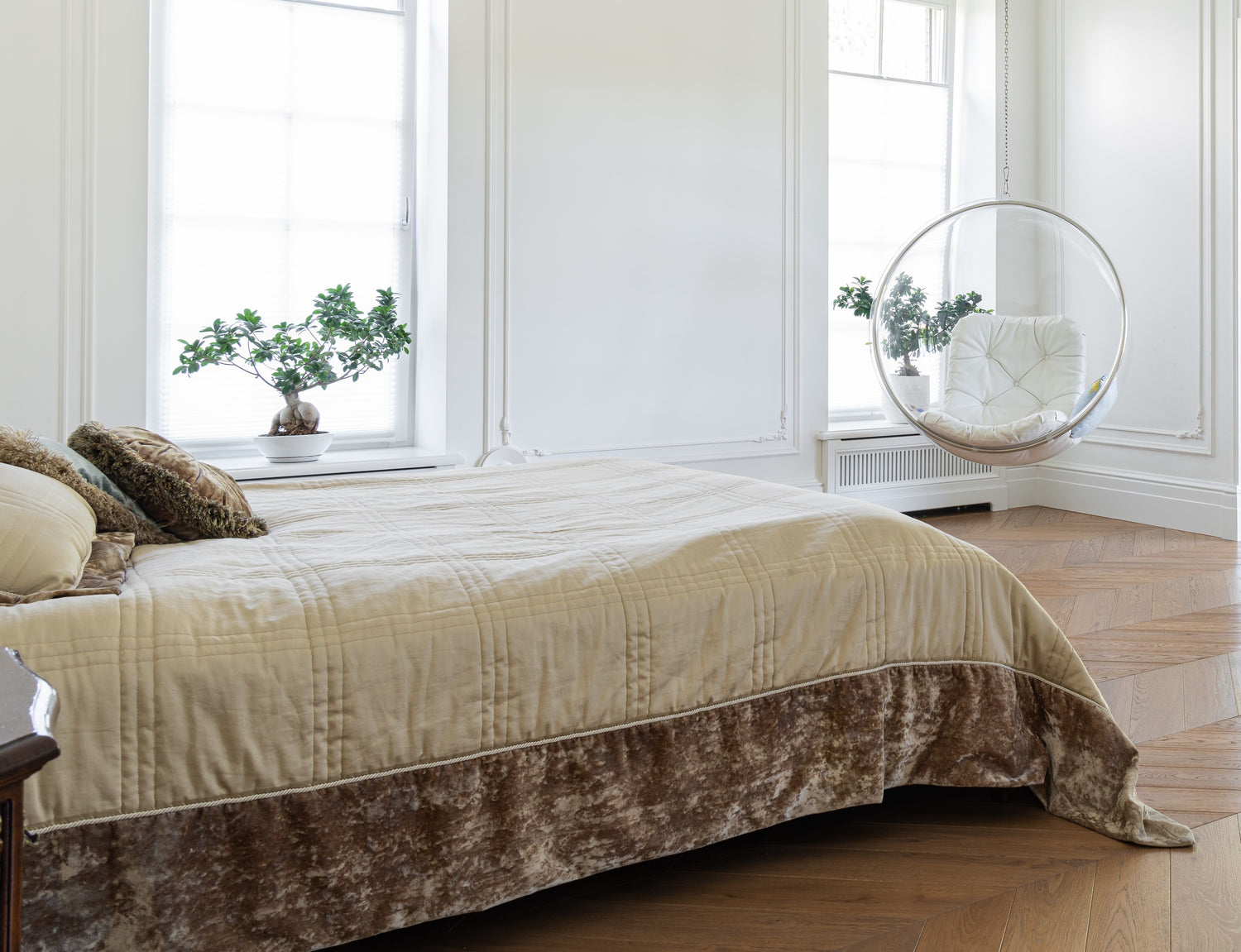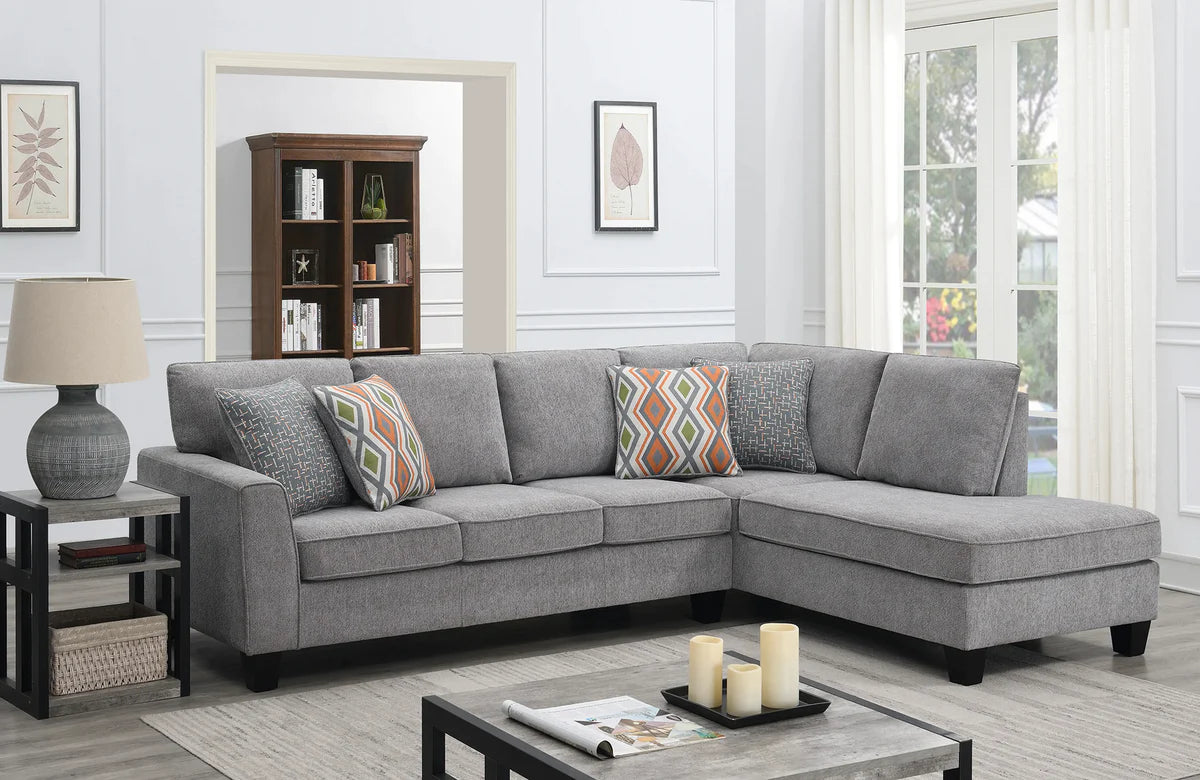Do you suffer from allergies and find it difficult to get a good night's sleep even in your most comfortable bed & mattress? You're not alone. Allergies affect as many as 50 million Americans and even millions of people each year according to the American College of Allergy, Asthma, and Immunology. And it can cause a range of symptoms, from sneezing and itching to nasal congestion and runny nose.
While allergies can be triggered by many factors, one of the primary culprits is dust mites, which thrive in warm, moist environments and feed on dead skin cells. Unfortunately, bedding is one of the prime habitats for dust mites, making it essential to understand the link between bedding and allergies and how to sleep better with allergies.
Allergies can make it difficult to sleep comfortably, particularly if you're allergic to dust mites. Dust mites are microscopic organisms that thrive in warm, moist environments and feed on dead skin cells shed by humans and animals. Bedding is one of the prime habitats for dust mites, making it essential to understand the link between bedding and allergies and how to sleep better with allergies.
The Link Between Bedding and Allergies
Bedding is a breeding ground for dust mites, which can cause a range of allergy symptoms, including sneezing, itching, runny nose, and nasal congestion. Dust mites are particularly prevalent in pillows, comforters, and mattresses, where they can build up over time. The problem is particularly pronounced in humid environments, where dust mites can thrive.
To avoid the harmful effects of dust mites, it's essential to invest in
How to Sleep Better with Allergies
Here are some tips to help you sleep better with allergies:
1. Invest in Hypoallergenic Bedding
As mentioned earlier, hypoallergenic bedding is designed to prevent allergens from building up. This can include pillows, comforters, and mattress covers made from materials such as cotton, bamboo, or microfiber. These materials are more resistant to dust mites and other allergens, making them ideal for people with allergies.

2. Wash Bedding Regularly
Washing your bedding regularly can help reduce the build-up of allergens. Bedding should be washed at least once a week in hot water to kill dust mites and remove any allergens that may have built up. Additionally, it's recommended that you use a hypoallergenic laundry detergent to avoid any further irritation.
3. Vacuum and Dust Your Bedroom
Regular vacuuming and dusting of your bedroom can also help reduce allergens in your bedding. Be sure to use a vacuum cleaner with a HEPA filter, as this can capture small allergen particles that regular vacuums miss. Dusting should be done with a damp cloth or a microfiber duster, as this will capture dust and prevent it from becoming airborne.

4. Avoid Eating in Bed
Eating in bed can lead to the build-up of crumbs and other debris that can attract dust mites. To avoid this, try to avoid eating in bed and instead opt for a designated eating area.
5. Keep Pets Out of the Bedroom
Pets can also contribute to allergens in the bedroom. Pet dander, hair, and saliva can all trigger allergy symptoms. To avoid this, it's recommended that you keep pets out of the bedroom.
6. Use an Air Purifier
Air purifiers can help reduce allergens in the bedroom by capturing small particles that can cause allergies. It's recommended that you use an air purifier with a HEPA filter, as this can capture particles as small as 0.3 microns.

Conclusion
In conclusion, allergies can make it difficult to sleep comfortably even in your most comfortable bed & mattress, but there are ways to mitigate the effects of allergens in your bedding. Investing in hypoallergenic bedding, washing your bedding regularly, vacuuming and dusting your bedroom, avoiding eating in bed, keeping pets out of the bedroom, and using an air purifier are all effective ways to reduce allergens and improve the quality of your sleep.
FAQS
How do I know if I have allergies caused by dust mites in my bedding?
Common symptoms of allergies caused by dust mites in bedding include sneezing, itching, a runny nose, and nasal congestion. If you experience these symptoms primarily while in bed or after waking up in the morning, it's possible that dust mites in your bedding are causing your allergies.
What is hypoallergenic bedding, and how does it help reduce allergies?
Hypoallergenic bedding is made from materials that are less likely to attract dust mites and other allergens, such as cotton, bamboo, or microfiber. These materials are woven tightly to prevent allergens from building up in the bedding. Hypoallergenic bedding can help reduce allergies by limiting the number of allergens in your bed.
How often should I wash my bedding to reduce allergies?
It's recommended that you wash your bedding at least once a week in hot water to kill dust mites and remove any allergens that may have built up. Using a hypoallergenic laundry detergent can also help reduce allergies further.
Can vacuuming and dusting my bedroom help reduce allergies?
Yes! Regular vacuuming and dusting of your bedroom can help reduce allergens in your bedding. Use a vacuum cleaner with a HEPA filter to capture small allergen particles that regular vacuums miss. Dusting should be done with a damp cloth or a microfiber duster to capture dust and prevent it from becoming airborne.
Can I still have pets in my home if I have allergies?
Yes, you can still have pets in your home if you have allergies. However, it's recommended that you keep pets out of the bedroom to avoid pet dander, hair, and saliva from triggering allergy symptoms. Keeping pets well-groomed and washing them regularly can also help reduce allergens in the home.





Leave a comment
This site is protected by hCaptcha and the hCaptcha Privacy Policy and Terms of Service apply.